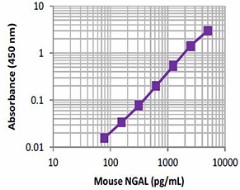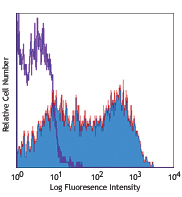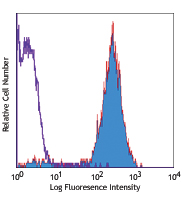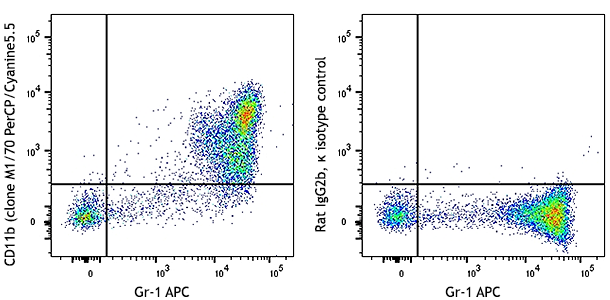- Regulatory Status
- RUO
- Other Names
- Lipocalin-2, Siderocalin, 24p3, Uterocalin, Neu-related lipocalin
- Ave. Rating
- Submit a Review
- Product Citations
- publications

| Cat # | Size | Price | Quantity Check Availability | Save | ||
|---|---|---|---|---|---|---|
| 443707 | 1 Pre-coated Plate | 398€ | ||||
Neutrophil Gelatinase-Associated Lipocalin (NGAL), also known as Lipocalin-2, Siderocalin, 24p3, Uterocalin, or Neu-related Lipocalin, is a member of the lipocalin family. It is a secreted protein (25kD), which captures bacterial siderophores that bind iron with high affinity. Studies with human samples show that NGAL predominantly exists in monomeric form, with a small portion in homodimeric and homotrimeric forms. It can also form a heterodimer with MMP-9 and a heterotrimer with MMP-9 and TIMP-1. Mouse NGAL shares 62% and 80% amino acid sequence identity with human and rat, respectively.
The functions of NGAL are diverse and continue to be studied. NGAL acts as a potent anti-bacterial agent via siderophore-mediated iron depletion. NGAL knockout mice exhibit decreased ability to combat bacterial infection. NGAL has been used as an early predictive and prognostic biomarker for acute and chronic kidney injuries. It has been associated with breast, lung, colon, and pancreatic cancer, having diverse, context-dependent effects during tumor development. This may involve cell growth, survival, migration, invasion, and angiogenesis. When NGAL forms a complex with MMP-9, it protects MMP-9 from degradation, thereby preserving MMP-9’s enzymatic activity, which has been involved in the development of several types of cancers.
The LEGEND MAX™ Mouse NGAL ELISA kit is a Sandwich Enzyme-Linked Immunosorbent Assay (ELISA) with a 96-well strip plate that is pre-coated with rat monoclonal anti-mouse NGAL antibody. The Detection Antibody is a biotinylated rat monoclonal anti-mouse NGAL antibody. This kit is specifically designed for the accurate quantitation of mouse NGAL from cell culture supernatant, cell lysate, serum, plasma, urine, and other biological fluids. This kit is analytically validated with ready-to-use reagents.
Kit Contents
- Kit Contents
-
- Anti-Mouse NGAL Pre-coated 96 well Strip Microplate
- Mouse NGAL Detection Antibody
- Mouse NGAL Standard
- Avidin-HRP
- Assay Buffer B
- Wash Buffer (20X)
- Substrate Solution D
- Stop Solution
- Plate Sealers
Product Details
- Verified Reactivity
- Mouse
- Application
-
ELISA
- Product Citations
-
- Sensitivity
- 22.5 pg/mL
- Standard Range
- 78 - 5,000 pg/mL
- Materials Not Included
-
- Microplate reader able to measure absorbance at 450 nm
- Adjustable pipettes to measure volumes ranging from 1 µL to 1,000 µL
- Deionized water
- Wash bottle or automated microplate washer
- Log-Log graph paper or software for data analysis
- Tubes to prepare standard dilutions
- Timer
- Plate Shaker
- Polypropylene vials
Antigen Details
- Biology Area
- Apoptosis/Tumor Suppressors/Cell Death, Cell Biology, Immunology, Innate Immunity, Signal Transduction
- Gene ID
- 16819 View all products for this Gene ID
- UniProt
- View information about NGAL on UniProt.org
Related Pages & Pathways
Pages
Related FAQs
- In your LEGEND MAX™ ELISA Kits, there is a step that calls for washing the plates before adding sample. What is the purpose of this step?
-
We typically use a stabilizer for pre-coated plates. The additional washing step is designed to remove these components before you start the assay. If you do not perform the washing, the effect on assay performance is negligible.
- I have multiple LEGEND MAX™ ELISA kits that I want to run simultaneously. Can I use the same wash buffer for all the kits?
-
The wash buffer provided in all our LEGEND MAX™ kits is the same and the part numbers on the wash buffer bottles in these kits should be identical. For ELISA MAX™ Deluxe and ELISA MAX™ Standard Sets, we provide a recipe for the wash buffer on each kit’s technical data sheet. This recipe is the same for all ELISA MAX™ sets.
- For some of your ELISA kits, why do my serum samples require dilution with assay buffer?
-
In some cases, dilution with assay buffer is required to minimize the matrix difference between the samples and the standards to achieve better accuracy.
Customers Also Purchased


 Login / Register
Login / Register 












Follow Us